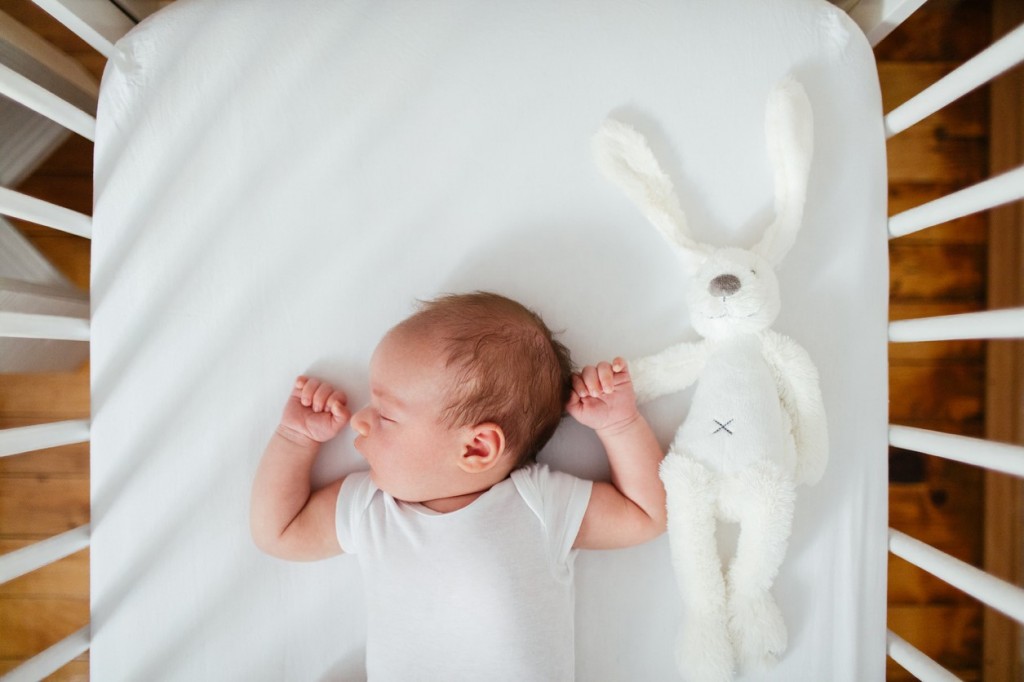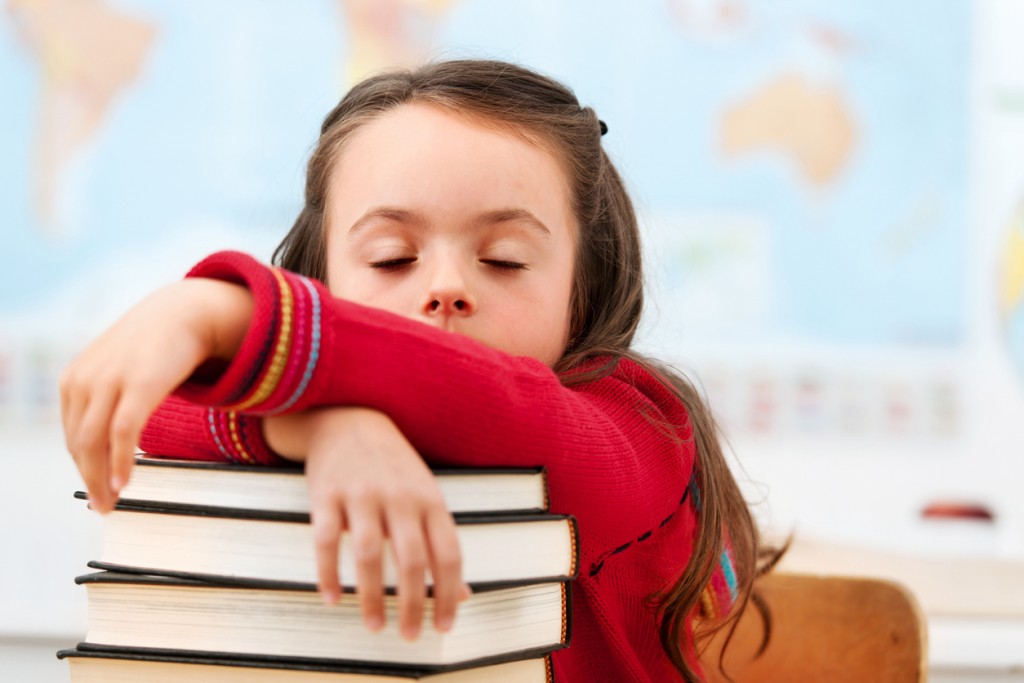How Much Sleep Do Kids Need?

Author: Jonathan Warren
Sleep is crucial for a child’s development, especially at an early age. It’s a time when they can reboot their energy levels, their bodies can grow, and essential hormones that are fundamental to their proper development are released.
But how much sleep do children actually need to do all this?
 Newborn sleep
During the first twelve weeks, a newborn baby will need to get plenty of rest. Although they may regularly wake up, they’ll typically go from needing around 16 hours in the first few weeks to around 14 hours as they get nearer to the three months old milestone.
These hours are spread across various sleeps throughout the day, and usually broken up into around 2-4 hours’ worth at a time – excellent for the baby, not so restful for the parent!
Young baby sleep
As babies grow, their need for sleep decreases, just as their resistance to naptime often increases!
From about four months old, you might start to notice your baby sleeps through the night (if only occasionally at first). At this age, 15 hours a day is ideal, but it’s probably realistically slightly less than this, thanks to their increasingly inquisitive nature.
This is a great age to start developing a routine to get your little one into good sleeping habits. As babies get older, their need for sleep reduces every three months by about an hour a day until they get to one year old.
Age one
From this age, children usually sleep through the night, and nap just once a day. They should be getting around 12 hours a day at this point.
Up until they reach school age, children will usually nap for about an hour a day, and get about 11-12 hours at night. Once they reach age five, they should get about 11 hours a day, all at night time.
Age six and up
At this point in their lives, children will most likely be used to the routine of getting up at the same time, heading to school (without a nap in the day), and sleeping through the night. Age six, they should have just under 11 hours at night, which as they age will decrease by about 15 minutes per year, meaning as they get to their early teens at 14, they’ll need a solid 9 hours a night.
Newborn sleep
During the first twelve weeks, a newborn baby will need to get plenty of rest. Although they may regularly wake up, they’ll typically go from needing around 16 hours in the first few weeks to around 14 hours as they get nearer to the three months old milestone.
These hours are spread across various sleeps throughout the day, and usually broken up into around 2-4 hours’ worth at a time – excellent for the baby, not so restful for the parent!
Young baby sleep
As babies grow, their need for sleep decreases, just as their resistance to naptime often increases!
From about four months old, you might start to notice your baby sleeps through the night (if only occasionally at first). At this age, 15 hours a day is ideal, but it’s probably realistically slightly less than this, thanks to their increasingly inquisitive nature.
This is a great age to start developing a routine to get your little one into good sleeping habits. As babies get older, their need for sleep reduces every three months by about an hour a day until they get to one year old.
Age one
From this age, children usually sleep through the night, and nap just once a day. They should be getting around 12 hours a day at this point.
Up until they reach school age, children will usually nap for about an hour a day, and get about 11-12 hours at night. Once they reach age five, they should get about 11 hours a day, all at night time.
Age six and up
At this point in their lives, children will most likely be used to the routine of getting up at the same time, heading to school (without a nap in the day), and sleeping through the night. Age six, they should have just under 11 hours at night, which as they age will decrease by about 15 minutes per year, meaning as they get to their early teens at 14, they’ll need a solid 9 hours a night.
 A lack of sleep
Not getting enough sleep can be detrimental to a child’s development – but what exactly are the consequences?
The Sleep Foundation partnered with experts to explain that without enough sleep, children can suffer from behavioural problems, learning difficulties and struggle with academic performance, not to mention the impact it can have on their emotions and mood as they grow. A lack of sleep has also been known to be linked to a higher risk of obesity.
The Sleep Foundation’s research also found that it’s not just about quantity when it comes to children’s sleep - having good, quality sleep is important too.
Having a quality night’s sleep can be encouraged in numerous ways. Removing any potential disturbances such as televisions, outside noises or even speaking loudly, having a comfortable space where a child feels safe, and developing a healthy routine for bedtime can all help. A great place to start when encouraging quality sleep is by creating a good environment for it. Our guide on Creating a Space for Sleep has some handy advice on how to do this.
Getting into good sleeping habits from an early age is a great way to begin a healthy relationship with sleep. Take a look at our guides on The Importance of a Bedtime Routine and How TVs, Phones and Screens Spoil Kids Sleep for more tips on getting sleep right.
Images: ©iStock.com/AleksandarNakic; ©iStock.com/lisegagne.
A lack of sleep
Not getting enough sleep can be detrimental to a child’s development – but what exactly are the consequences?
The Sleep Foundation partnered with experts to explain that without enough sleep, children can suffer from behavioural problems, learning difficulties and struggle with academic performance, not to mention the impact it can have on their emotions and mood as they grow. A lack of sleep has also been known to be linked to a higher risk of obesity.
The Sleep Foundation’s research also found that it’s not just about quantity when it comes to children’s sleep - having good, quality sleep is important too.
Having a quality night’s sleep can be encouraged in numerous ways. Removing any potential disturbances such as televisions, outside noises or even speaking loudly, having a comfortable space where a child feels safe, and developing a healthy routine for bedtime can all help. A great place to start when encouraging quality sleep is by creating a good environment for it. Our guide on Creating a Space for Sleep has some handy advice on how to do this.
Getting into good sleeping habits from an early age is a great way to begin a healthy relationship with sleep. Take a look at our guides on The Importance of a Bedtime Routine and How TVs, Phones and Screens Spoil Kids Sleep for more tips on getting sleep right.
Images: ©iStock.com/AleksandarNakic; ©iStock.com/lisegagne.
 Newborn sleep
During the first twelve weeks, a newborn baby will need to get plenty of rest. Although they may regularly wake up, they’ll typically go from needing around 16 hours in the first few weeks to around 14 hours as they get nearer to the three months old milestone.
These hours are spread across various sleeps throughout the day, and usually broken up into around 2-4 hours’ worth at a time – excellent for the baby, not so restful for the parent!
Young baby sleep
As babies grow, their need for sleep decreases, just as their resistance to naptime often increases!
From about four months old, you might start to notice your baby sleeps through the night (if only occasionally at first). At this age, 15 hours a day is ideal, but it’s probably realistically slightly less than this, thanks to their increasingly inquisitive nature.
This is a great age to start developing a routine to get your little one into good sleeping habits. As babies get older, their need for sleep reduces every three months by about an hour a day until they get to one year old.
Age one
From this age, children usually sleep through the night, and nap just once a day. They should be getting around 12 hours a day at this point.
Up until they reach school age, children will usually nap for about an hour a day, and get about 11-12 hours at night. Once they reach age five, they should get about 11 hours a day, all at night time.
Age six and up
At this point in their lives, children will most likely be used to the routine of getting up at the same time, heading to school (without a nap in the day), and sleeping through the night. Age six, they should have just under 11 hours at night, which as they age will decrease by about 15 minutes per year, meaning as they get to their early teens at 14, they’ll need a solid 9 hours a night.
Newborn sleep
During the first twelve weeks, a newborn baby will need to get plenty of rest. Although they may regularly wake up, they’ll typically go from needing around 16 hours in the first few weeks to around 14 hours as they get nearer to the three months old milestone.
These hours are spread across various sleeps throughout the day, and usually broken up into around 2-4 hours’ worth at a time – excellent for the baby, not so restful for the parent!
Young baby sleep
As babies grow, their need for sleep decreases, just as their resistance to naptime often increases!
From about four months old, you might start to notice your baby sleeps through the night (if only occasionally at first). At this age, 15 hours a day is ideal, but it’s probably realistically slightly less than this, thanks to their increasingly inquisitive nature.
This is a great age to start developing a routine to get your little one into good sleeping habits. As babies get older, their need for sleep reduces every three months by about an hour a day until they get to one year old.
Age one
From this age, children usually sleep through the night, and nap just once a day. They should be getting around 12 hours a day at this point.
Up until they reach school age, children will usually nap for about an hour a day, and get about 11-12 hours at night. Once they reach age five, they should get about 11 hours a day, all at night time.
Age six and up
At this point in their lives, children will most likely be used to the routine of getting up at the same time, heading to school (without a nap in the day), and sleeping through the night. Age six, they should have just under 11 hours at night, which as they age will decrease by about 15 minutes per year, meaning as they get to their early teens at 14, they’ll need a solid 9 hours a night.
 A lack of sleep
Not getting enough sleep can be detrimental to a child’s development – but what exactly are the consequences?
The Sleep Foundation partnered with experts to explain that without enough sleep, children can suffer from behavioural problems, learning difficulties and struggle with academic performance, not to mention the impact it can have on their emotions and mood as they grow. A lack of sleep has also been known to be linked to a higher risk of obesity.
The Sleep Foundation’s research also found that it’s not just about quantity when it comes to children’s sleep - having good, quality sleep is important too.
Having a quality night’s sleep can be encouraged in numerous ways. Removing any potential disturbances such as televisions, outside noises or even speaking loudly, having a comfortable space where a child feels safe, and developing a healthy routine for bedtime can all help. A great place to start when encouraging quality sleep is by creating a good environment for it. Our guide on Creating a Space for Sleep has some handy advice on how to do this.
Getting into good sleeping habits from an early age is a great way to begin a healthy relationship with sleep. Take a look at our guides on The Importance of a Bedtime Routine and How TVs, Phones and Screens Spoil Kids Sleep for more tips on getting sleep right.
Images: ©iStock.com/AleksandarNakic; ©iStock.com/lisegagne.
A lack of sleep
Not getting enough sleep can be detrimental to a child’s development – but what exactly are the consequences?
The Sleep Foundation partnered with experts to explain that without enough sleep, children can suffer from behavioural problems, learning difficulties and struggle with academic performance, not to mention the impact it can have on their emotions and mood as they grow. A lack of sleep has also been known to be linked to a higher risk of obesity.
The Sleep Foundation’s research also found that it’s not just about quantity when it comes to children’s sleep - having good, quality sleep is important too.
Having a quality night’s sleep can be encouraged in numerous ways. Removing any potential disturbances such as televisions, outside noises or even speaking loudly, having a comfortable space where a child feels safe, and developing a healthy routine for bedtime can all help. A great place to start when encouraging quality sleep is by creating a good environment for it. Our guide on Creating a Space for Sleep has some handy advice on how to do this.
Getting into good sleeping habits from an early age is a great way to begin a healthy relationship with sleep. Take a look at our guides on The Importance of a Bedtime Routine and How TVs, Phones and Screens Spoil Kids Sleep for more tips on getting sleep right.
Images: ©iStock.com/AleksandarNakic; ©iStock.com/lisegagne.



